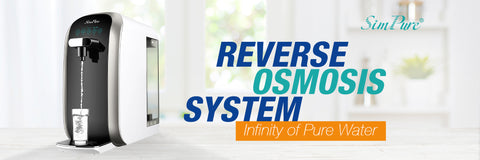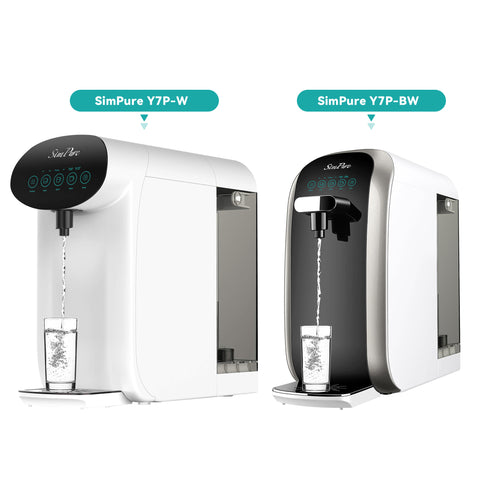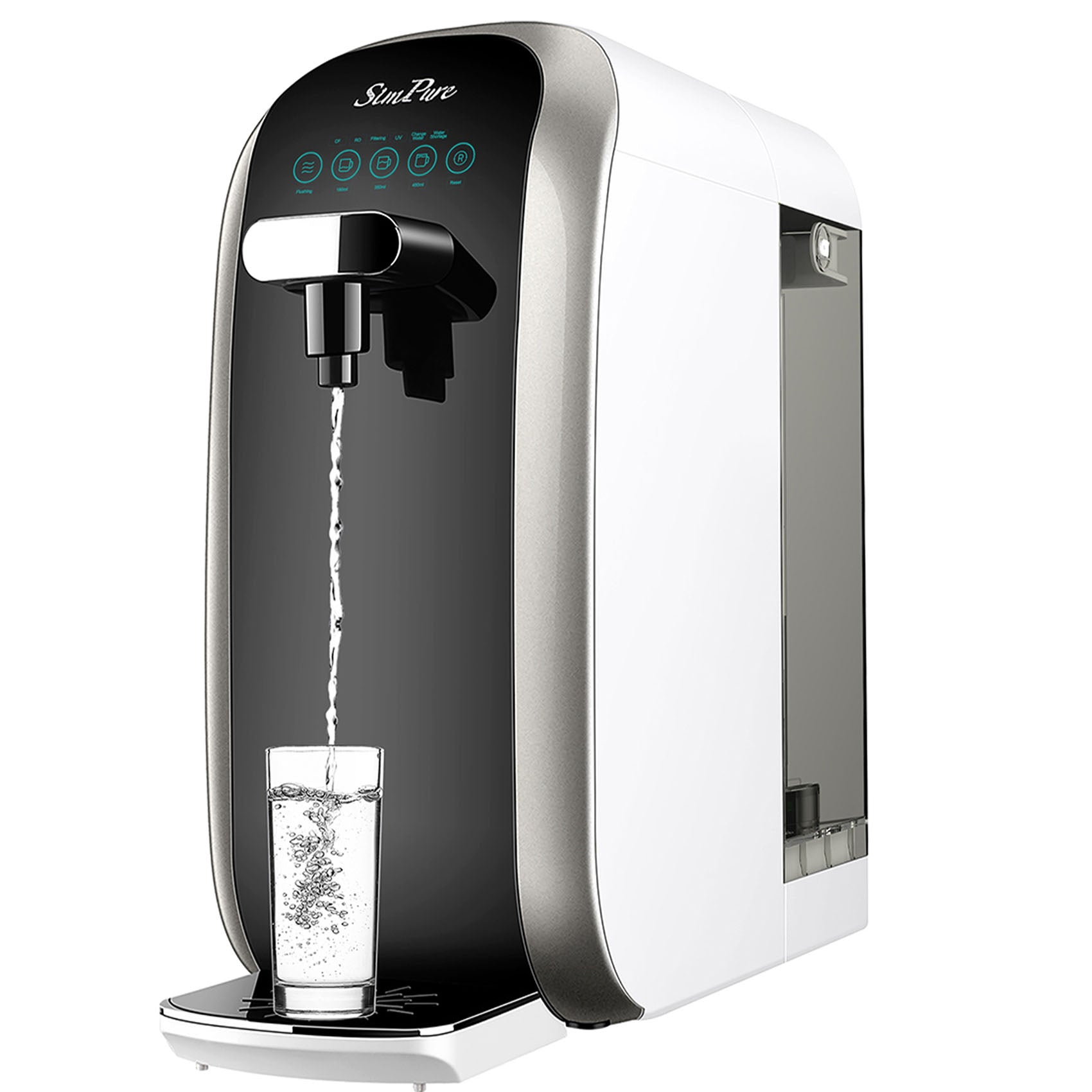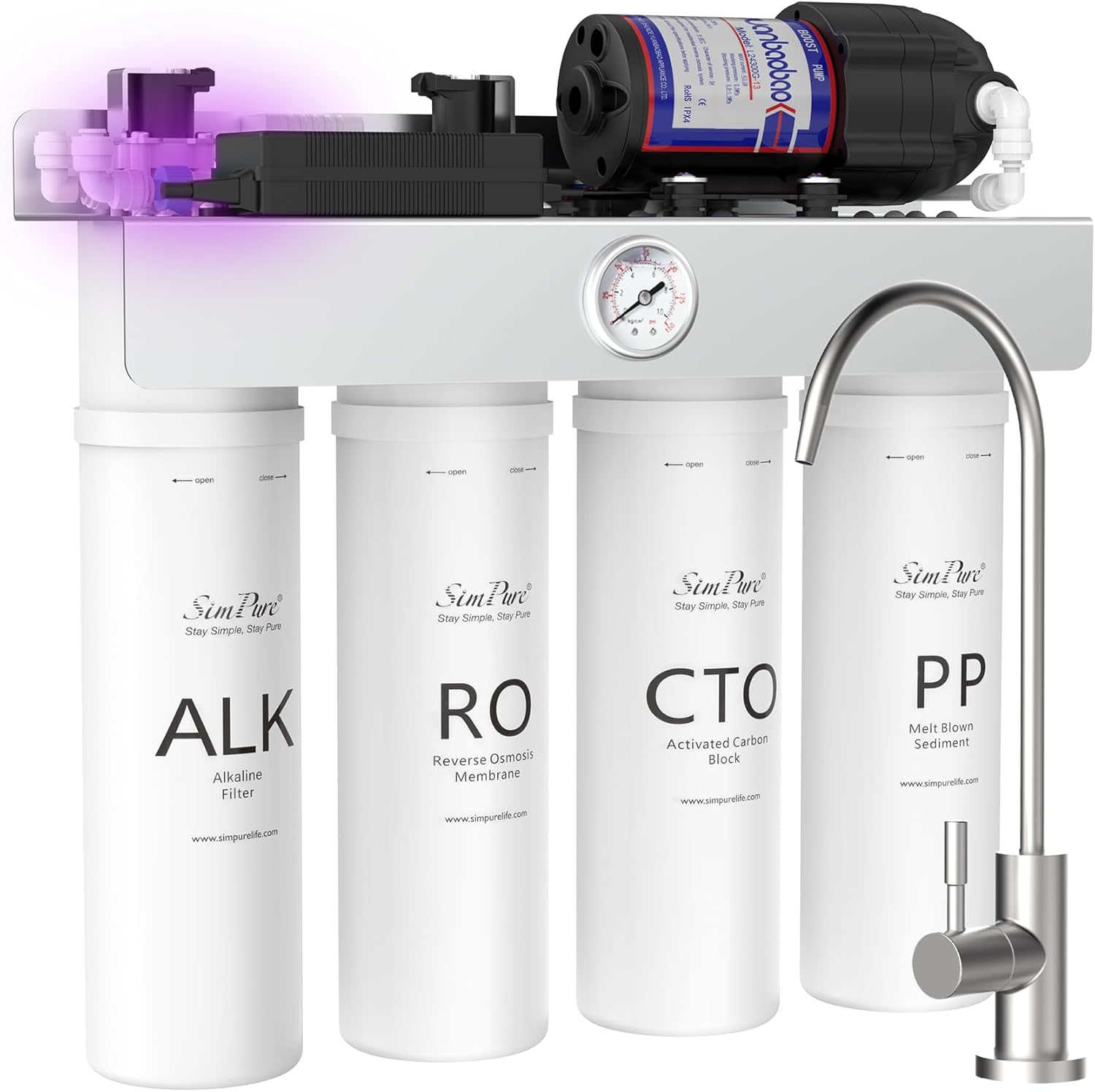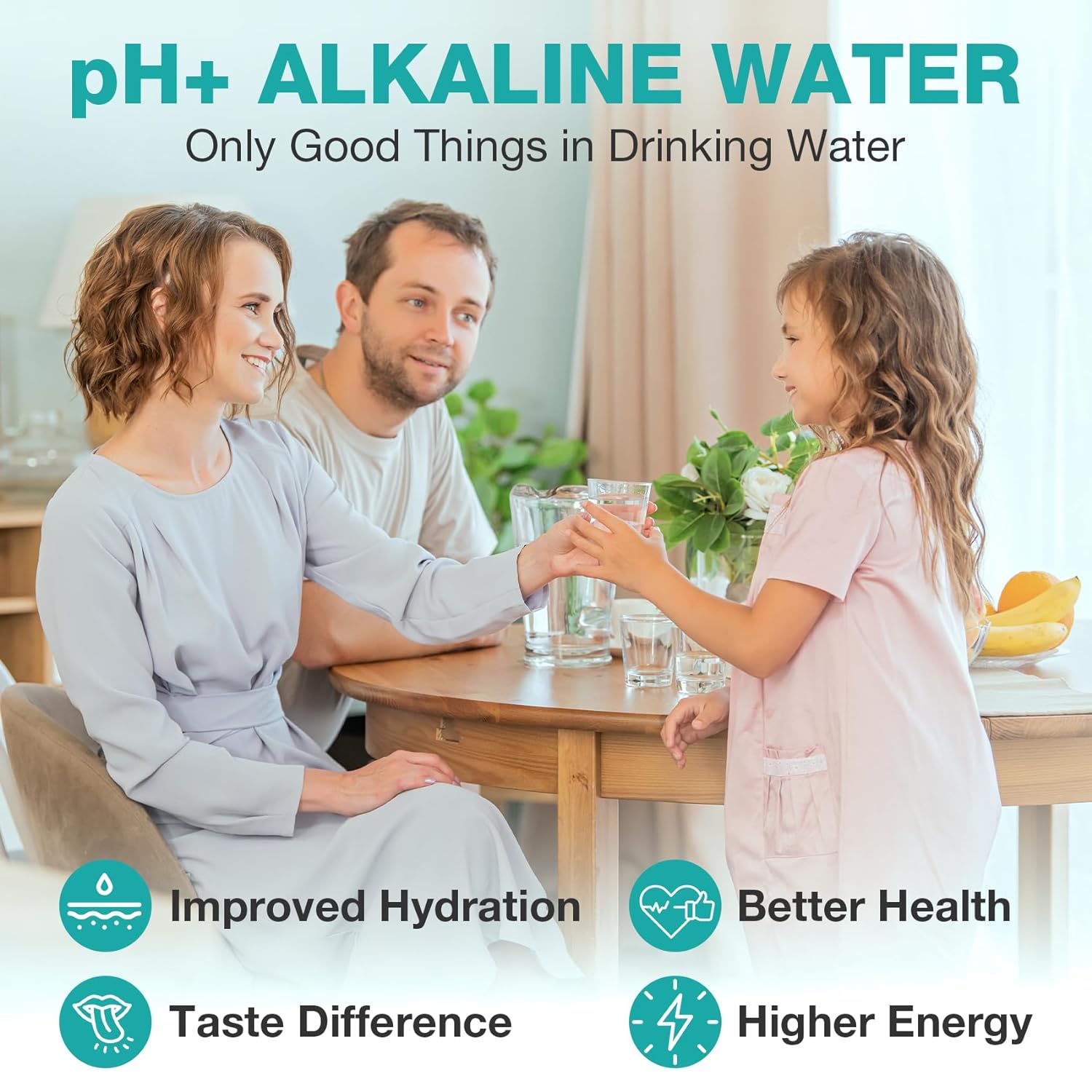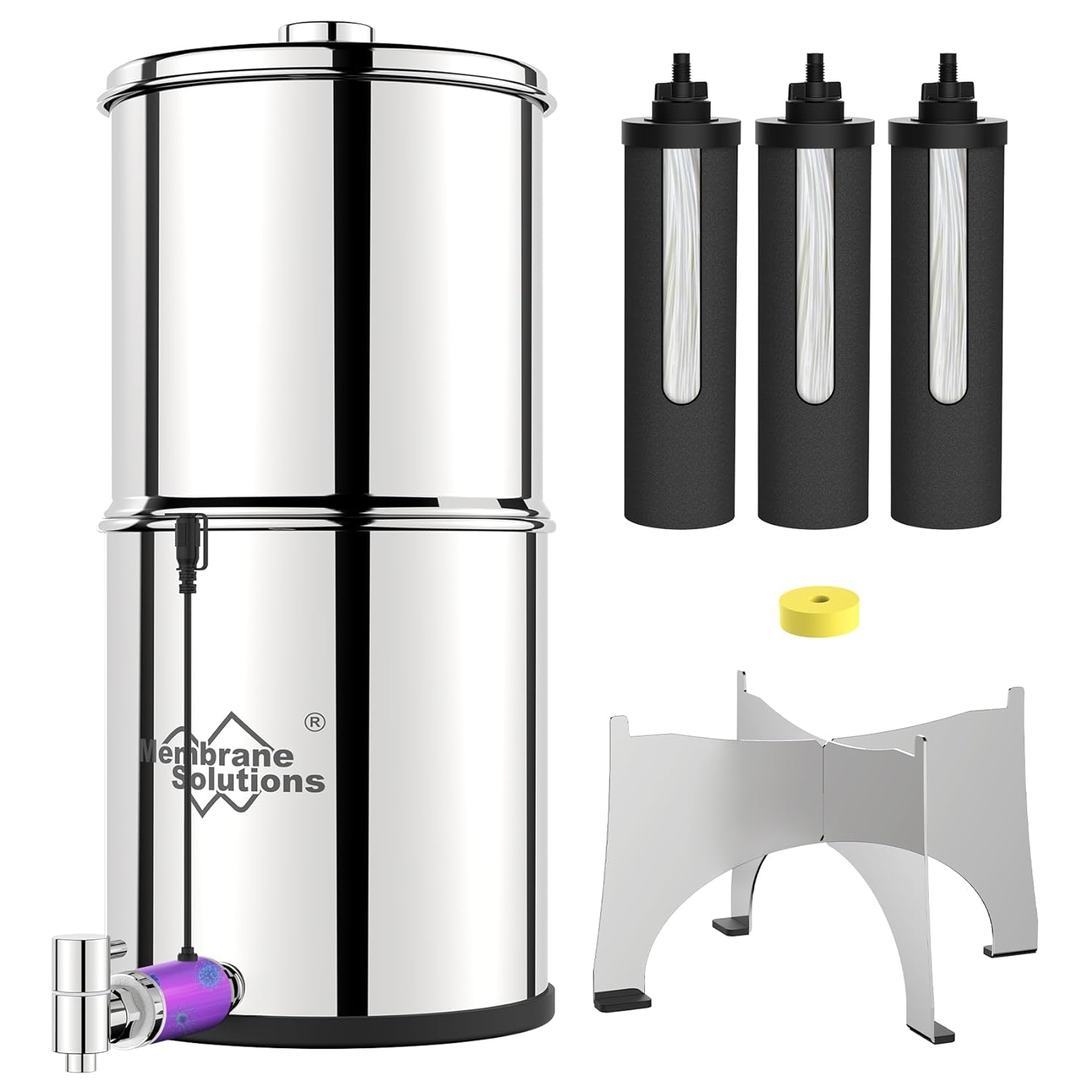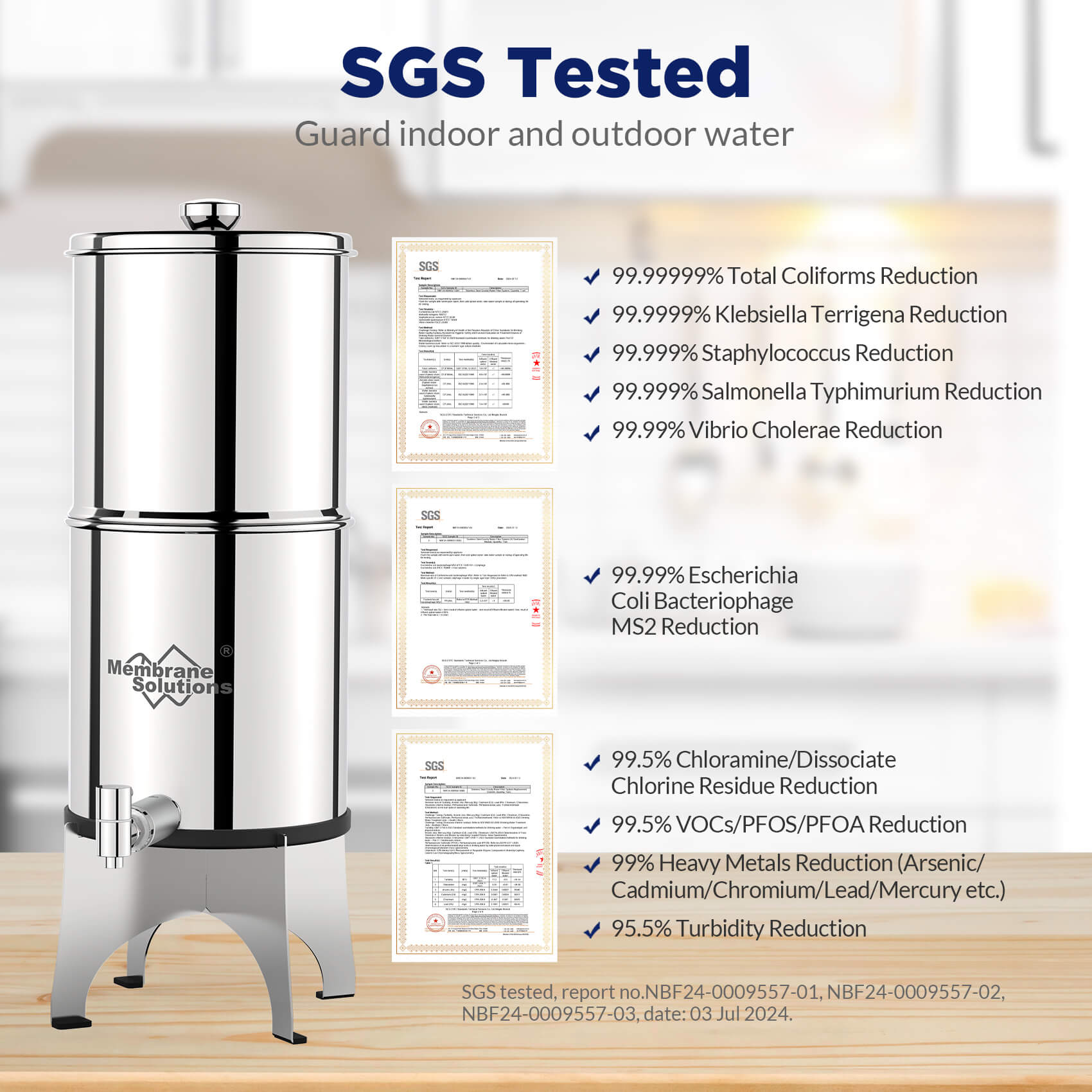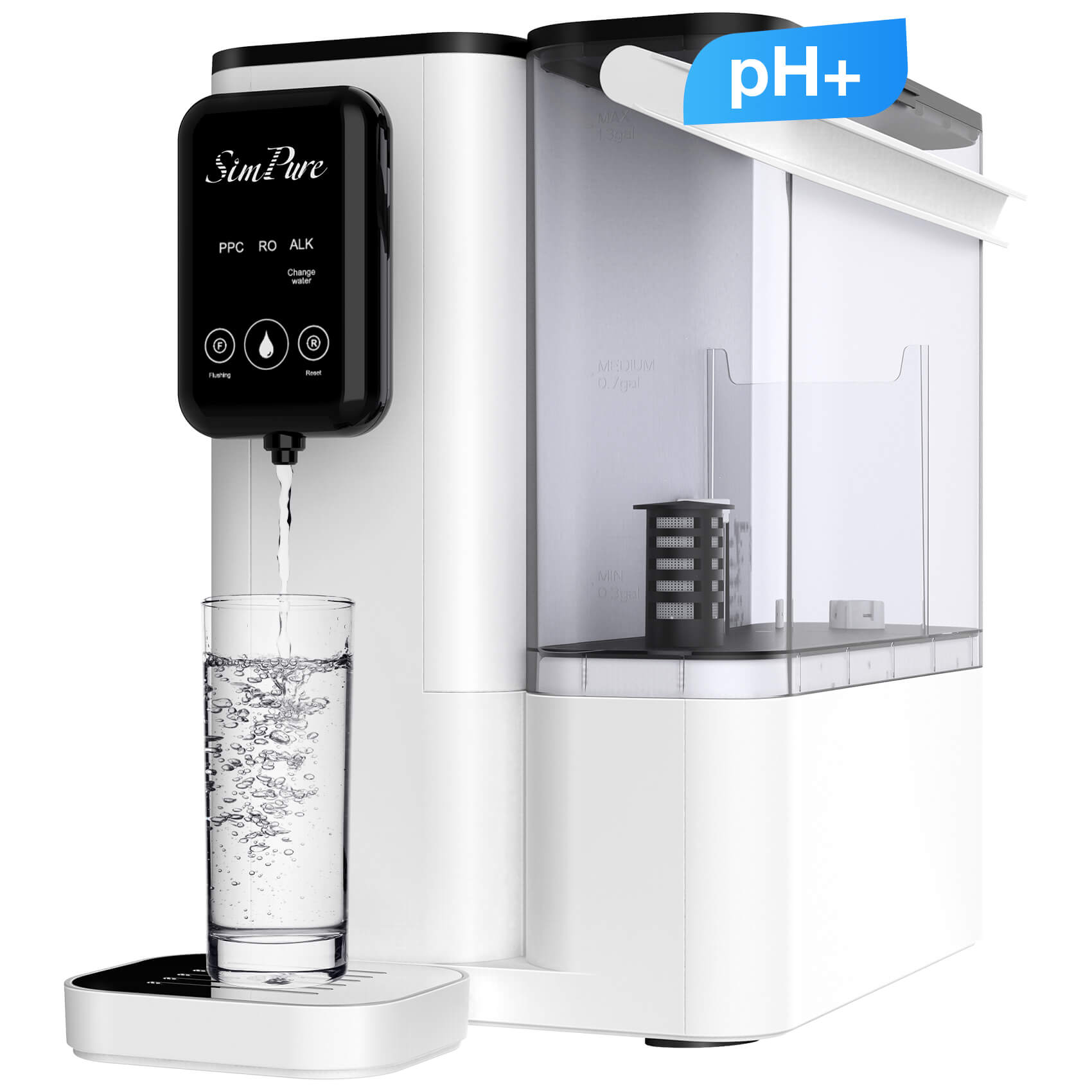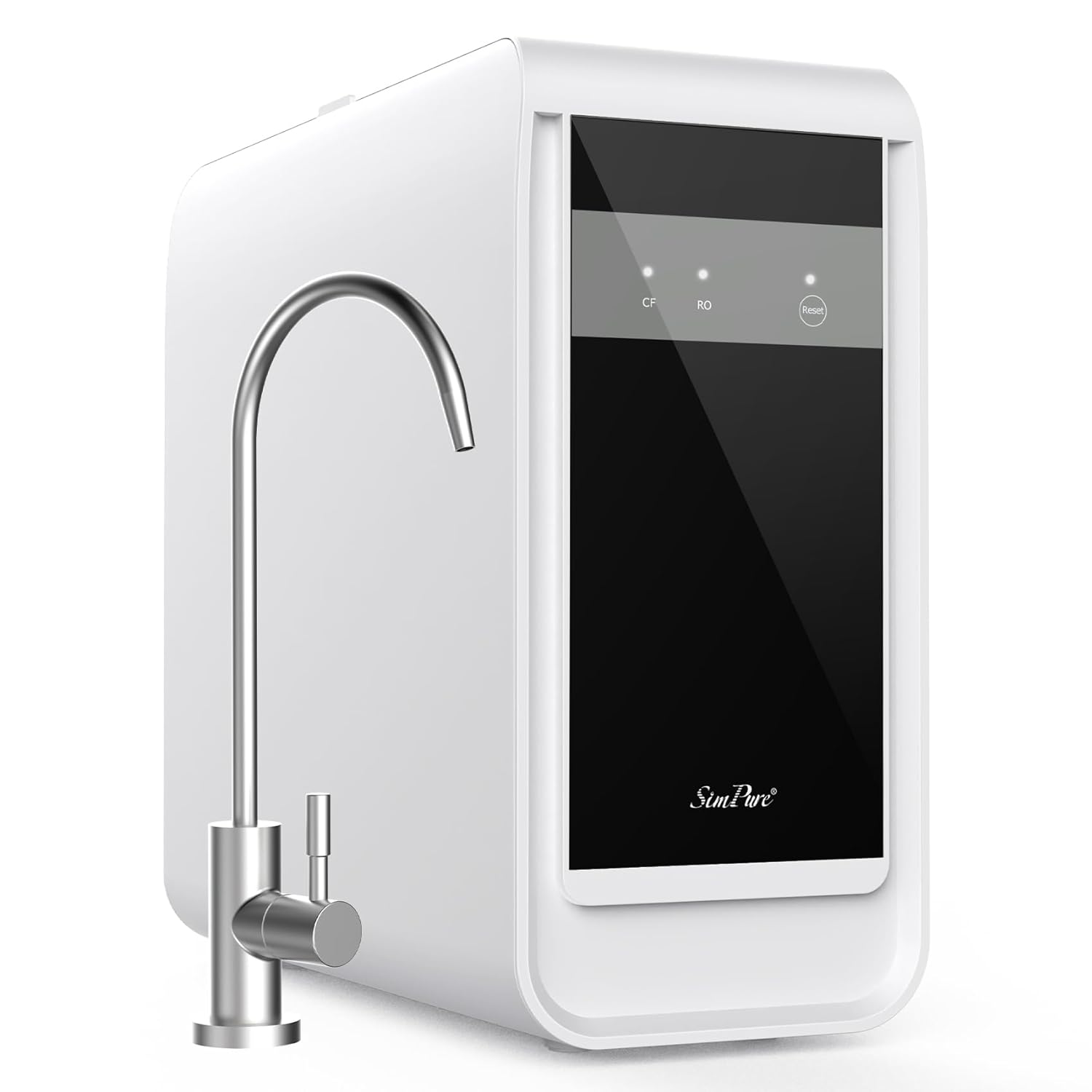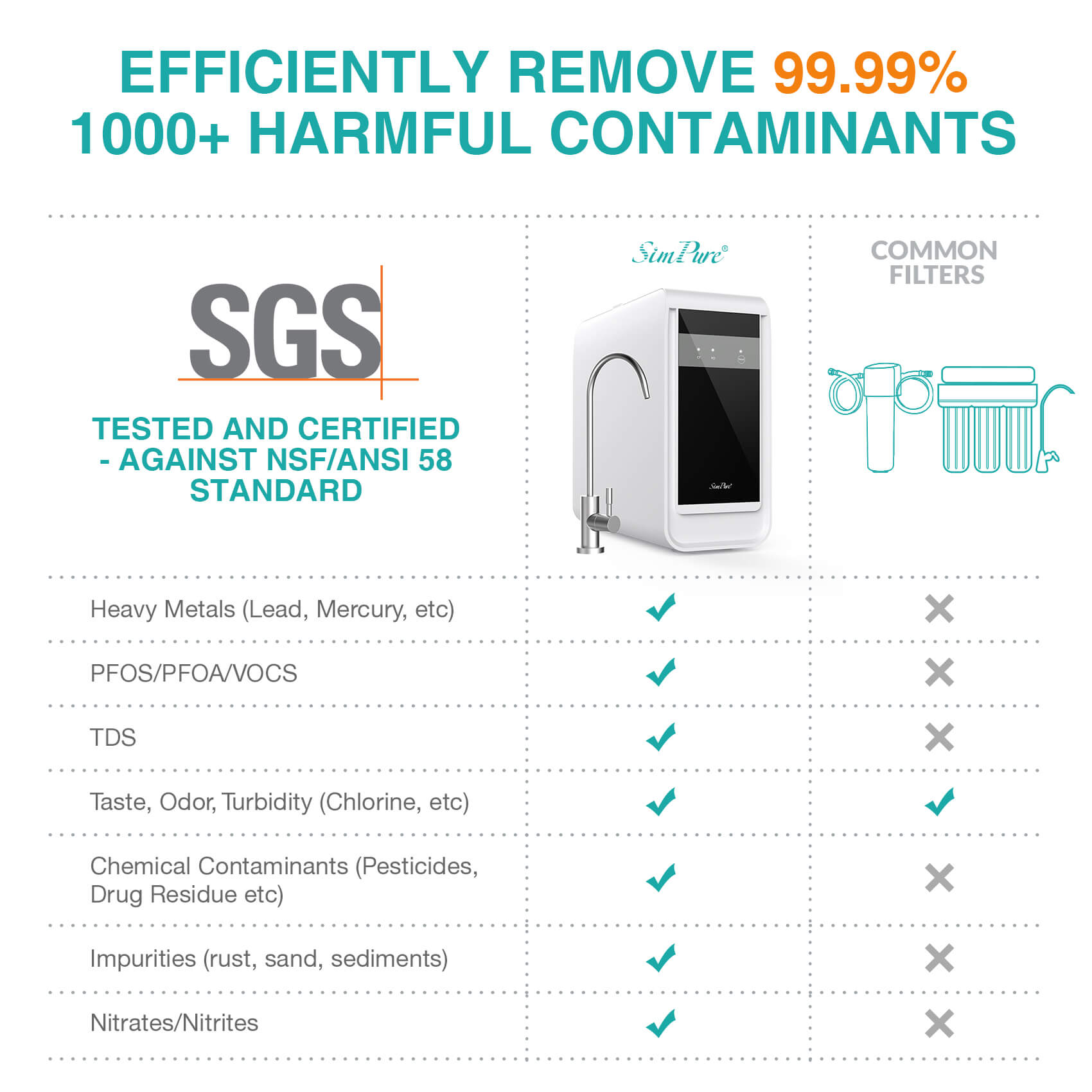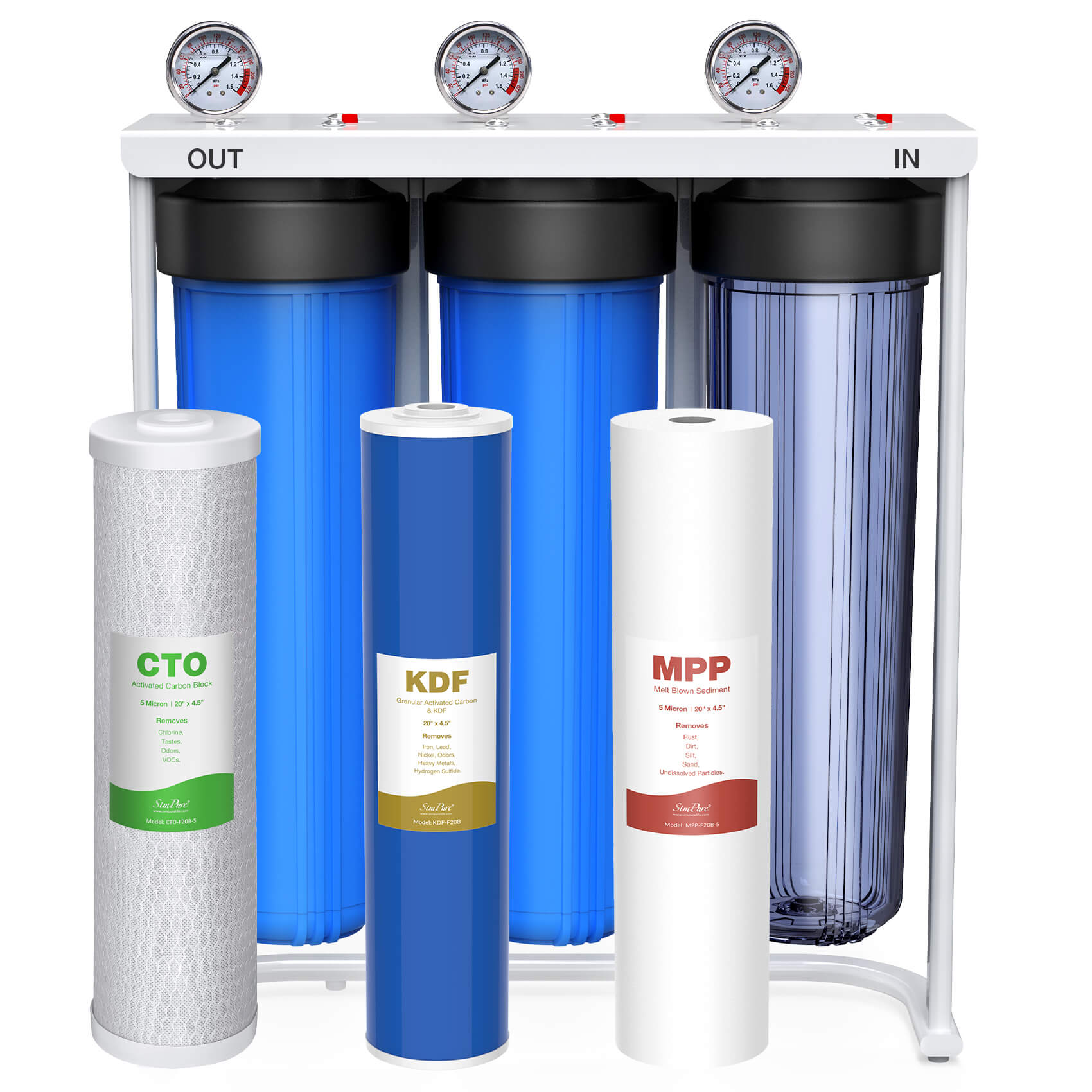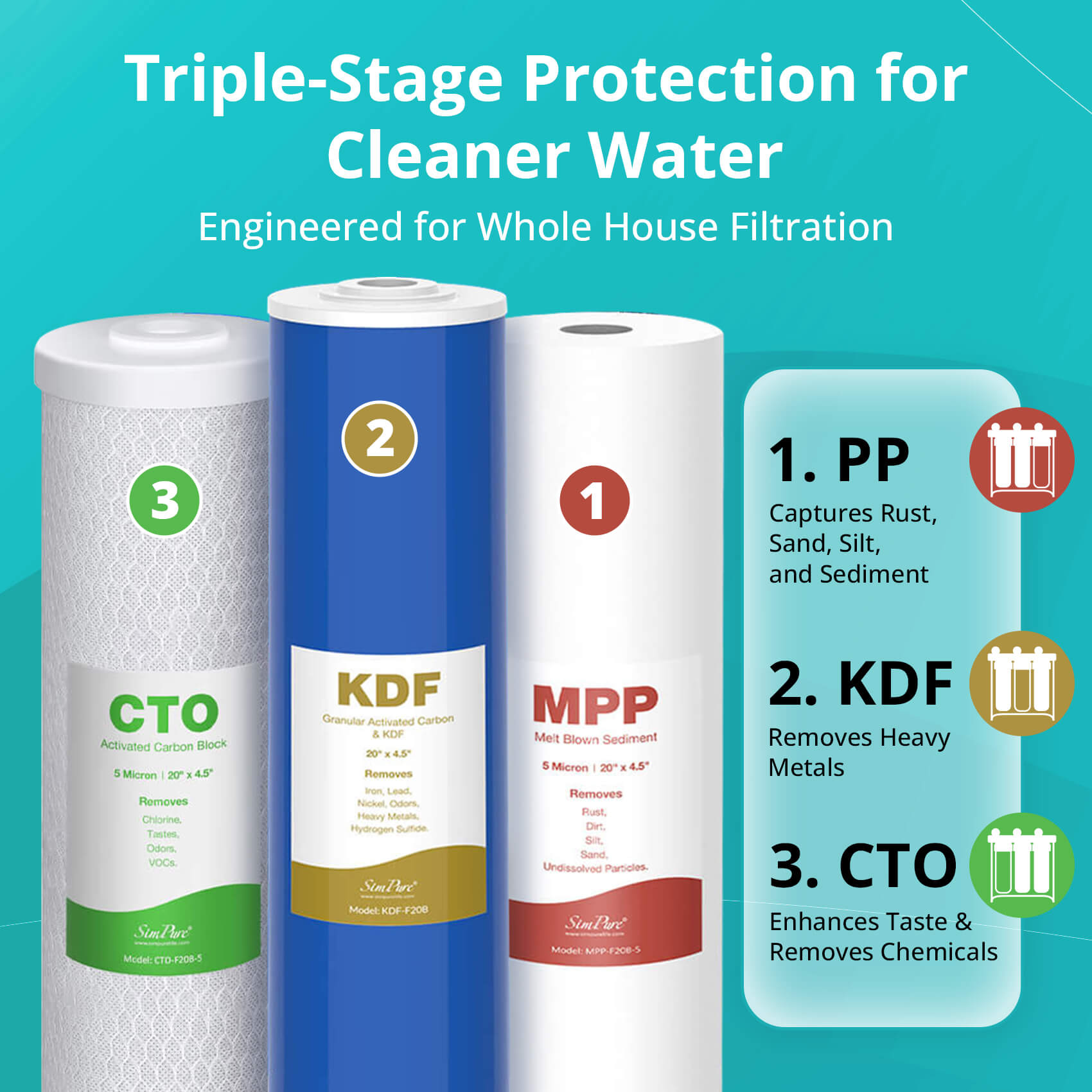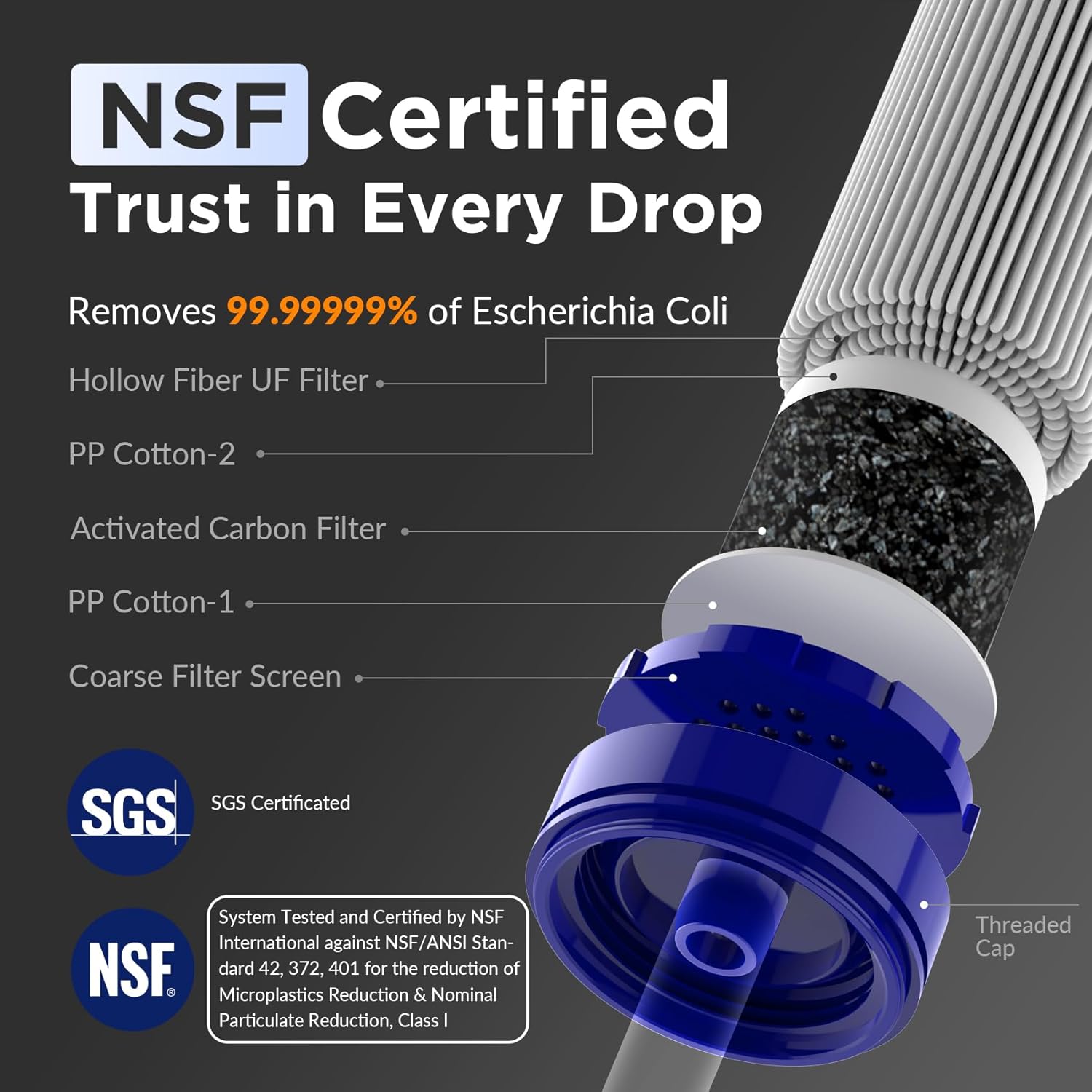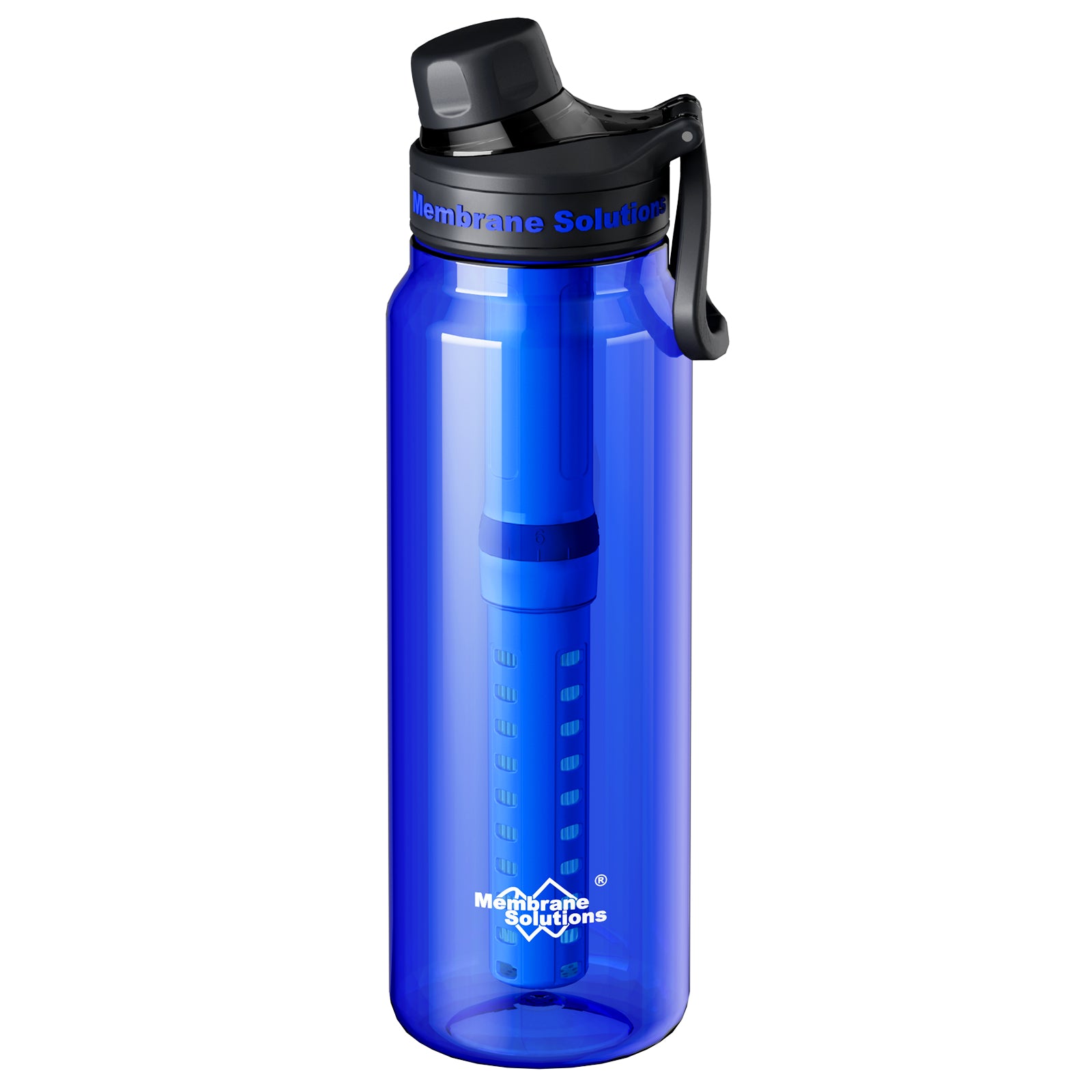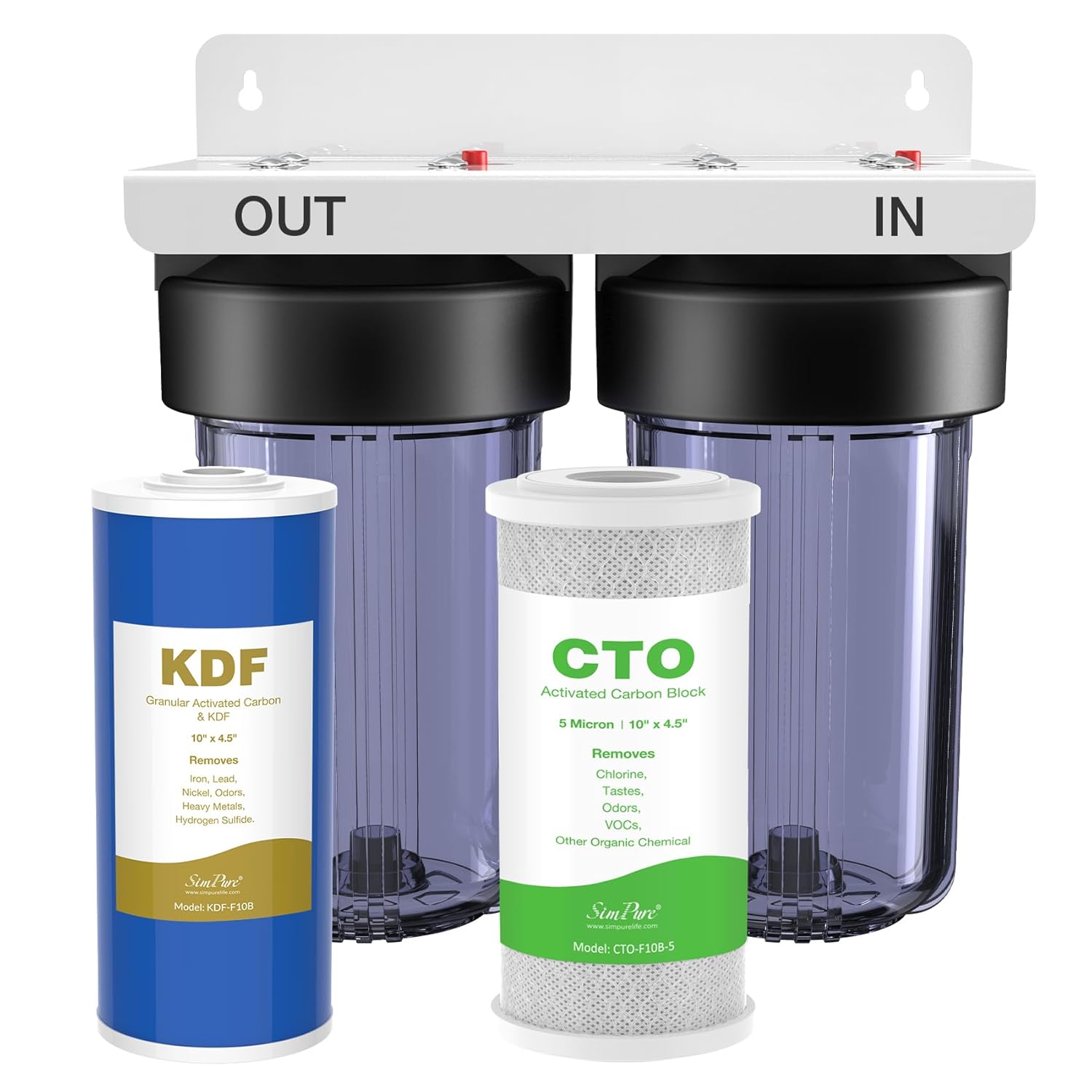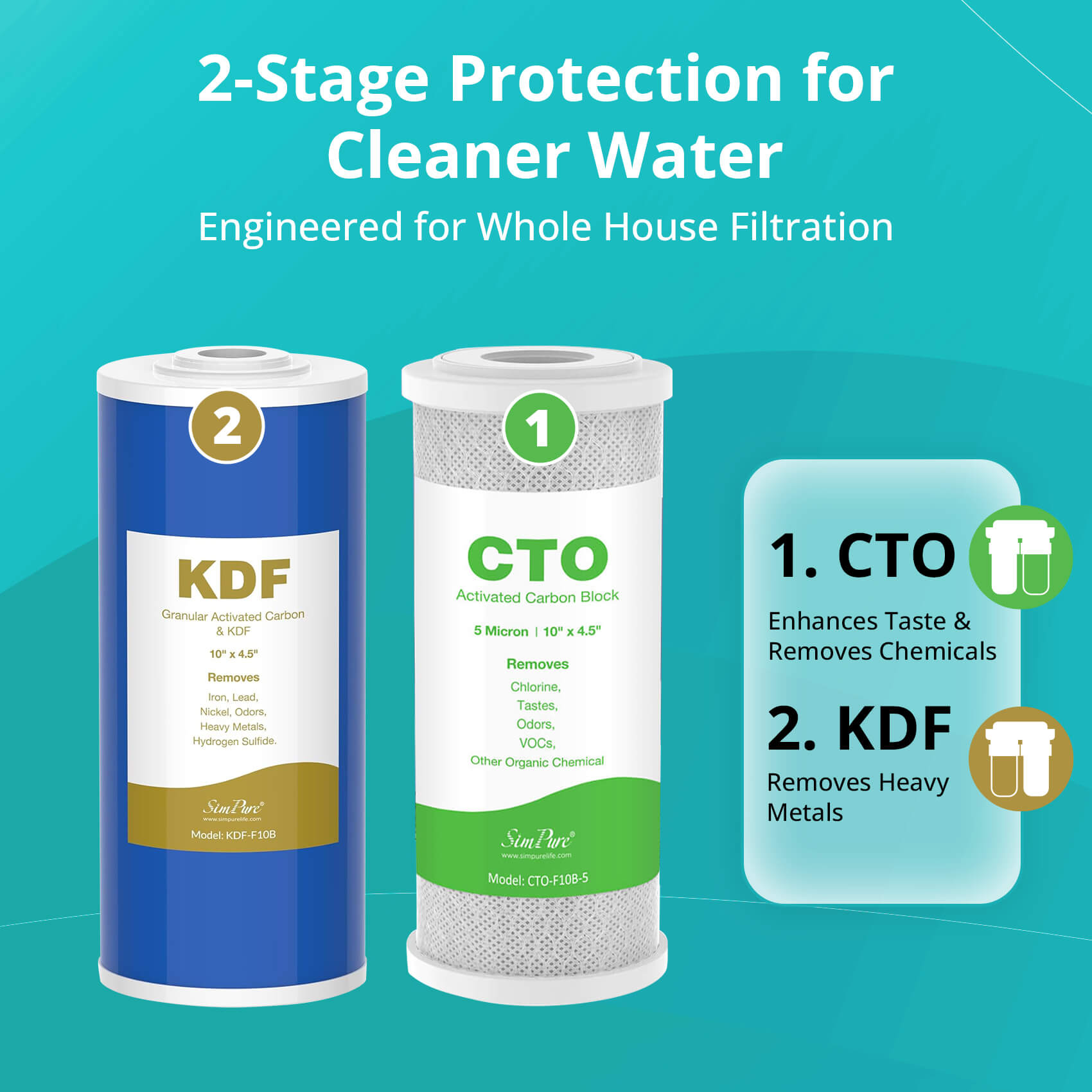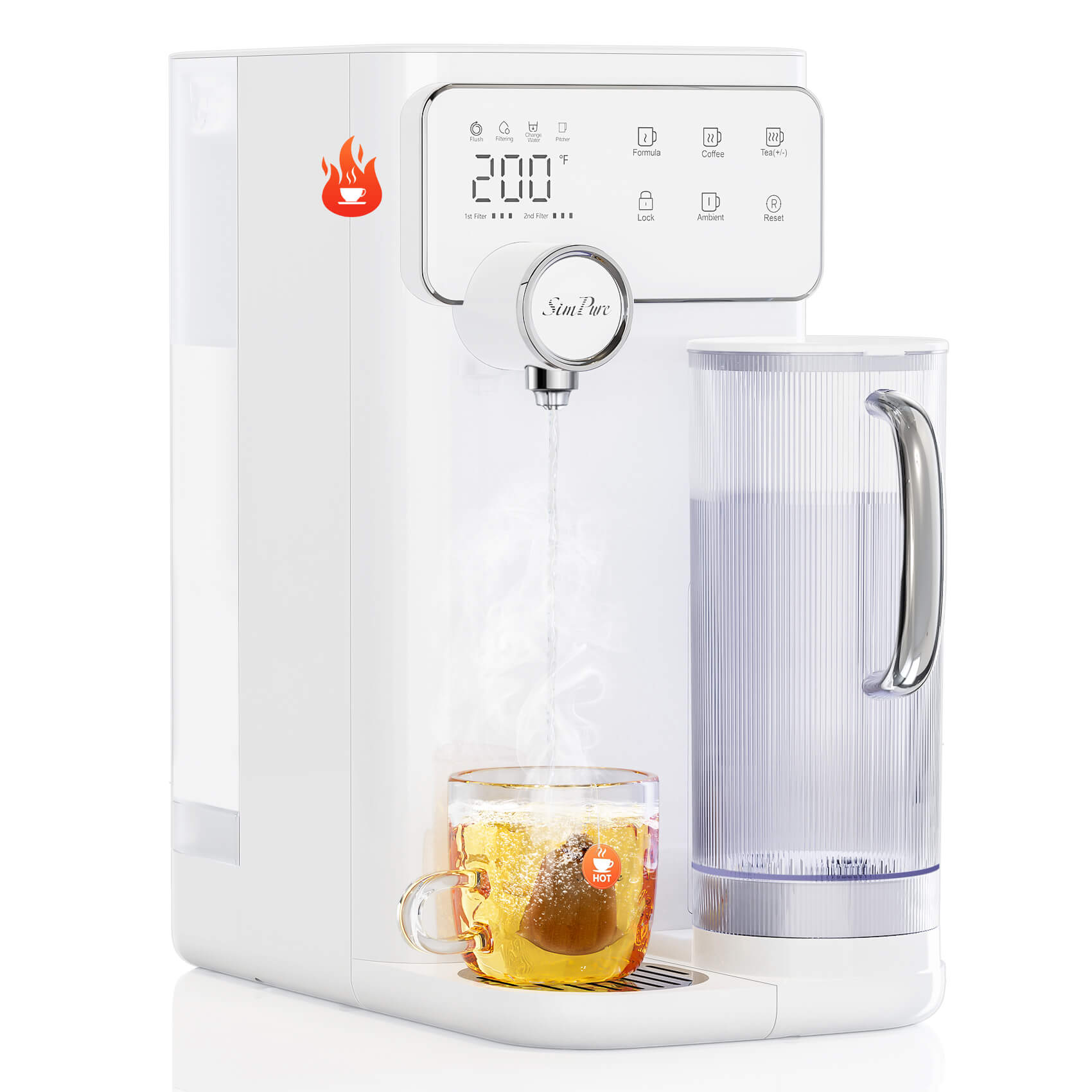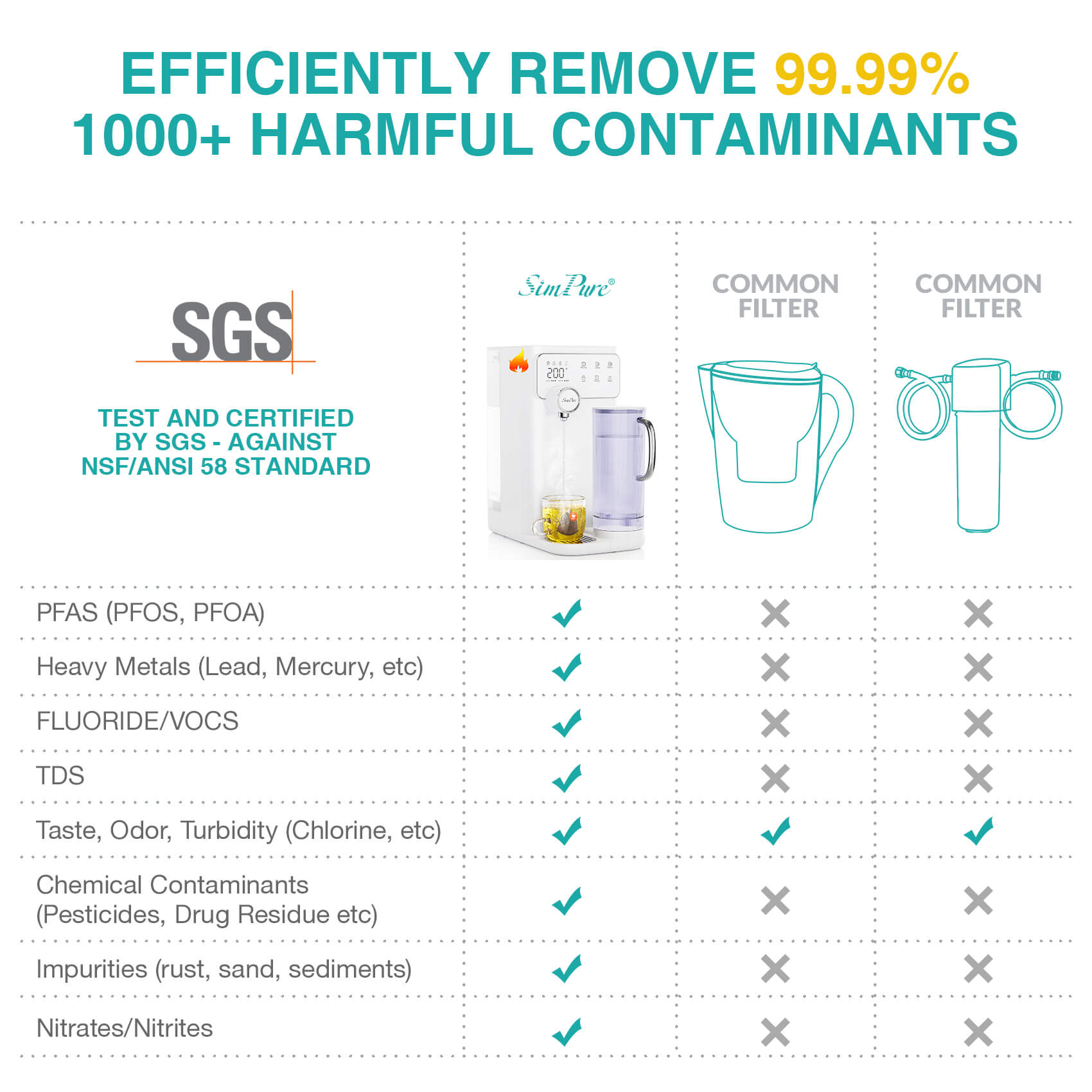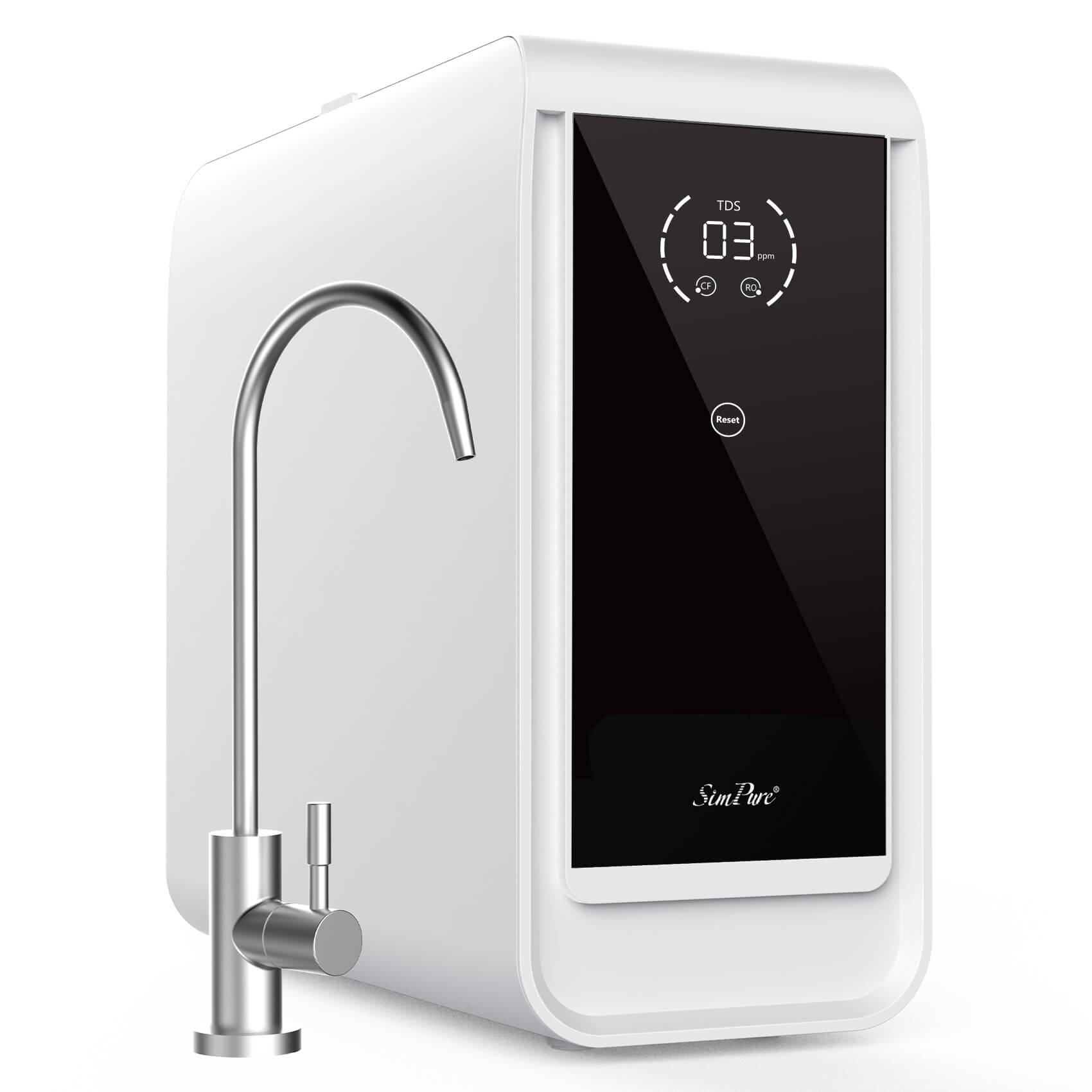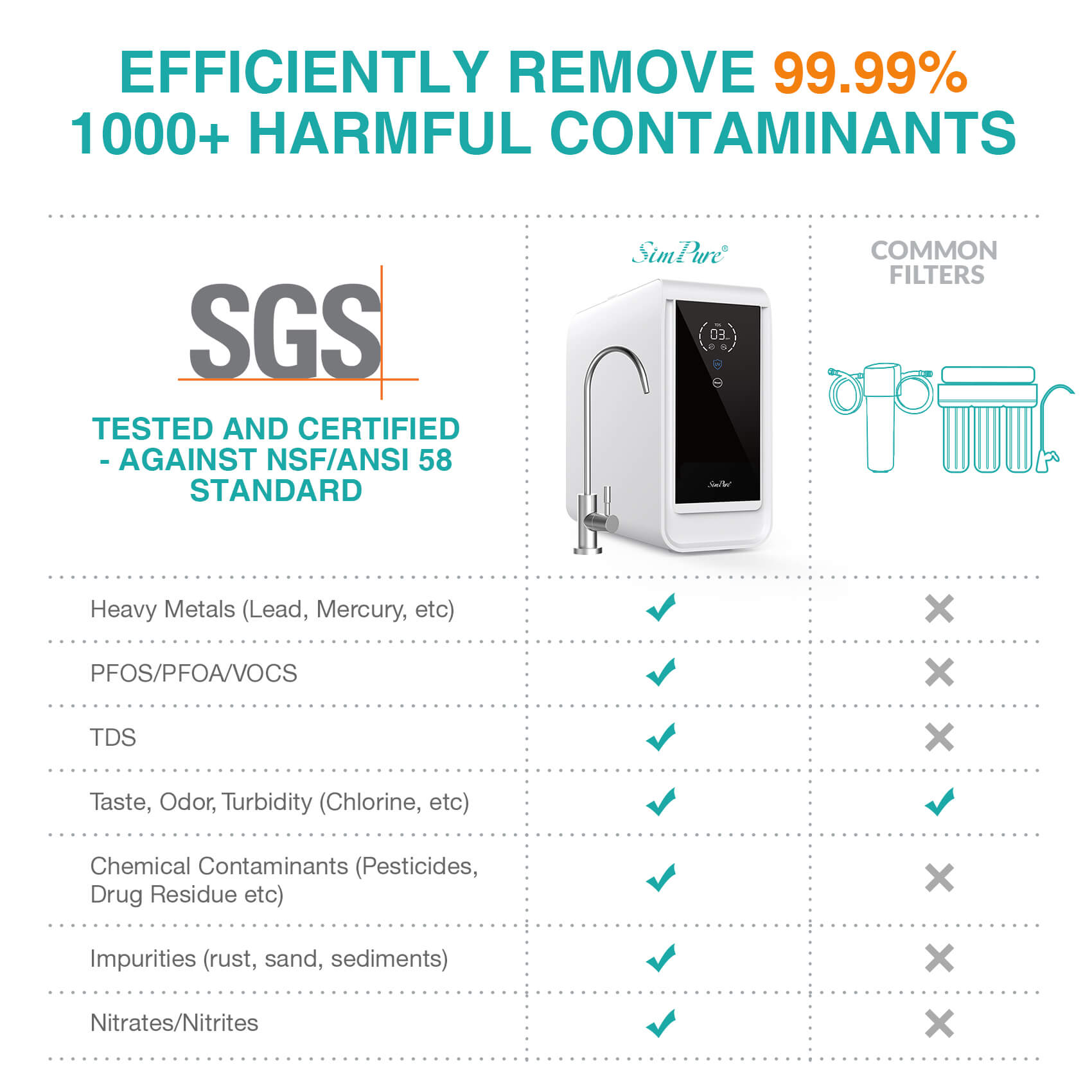Have you ever wondered why the water in the tap has a distinctive smell? It's often described as a strong, bleach-like smell that can be overwhelming. That's because many public water systems add chlorine to the water for disinfection. Chlorine is a common chemical used for everything from disinfecting water to making plastics. But does chlorine smell? In this article, we'll take a deep dive into the question of does chlorine have a smell. We'll explore with you the reasons of adding chlorine to water, and what are the alternatives to adding chlorine to water purification.
Why Is Chlorine Added to Water?

Before answering the question of does chlorine have a smell, let's look at the reasons for adding chlorine to the water. Chlorine is a powerful disinfectant that kills bacteria, viruses, and other microorganisms, including those that can cause illness. Many public water systems sanitize water by adding chlorine to ensure water quality and safety. Chlorine is added to water for the following reasons:
1. Disinfection
Chlorine is a powerful disinfectant that kills bacteria, viruses, and other microorganisms in water, reducing the risk of waterborne illness.
2. Ensure Water Quality and Remove Peculiar Smell
Chlorination helps water treatment plants ensure that the water they supply to the public meets sanitary standards and prevents contamination of water sources that can lead to health problems.
3. Extend the Storage Time of Water
In some cases, adding chlorine can keep the water longer and prevent bacteria and other microorganisms from multiplying in the water, thereby extending the life of the water.
However, it should be noted that excessive chlorine will cause harm to human health, so the dosage should be controlled when adding chlorine, and chlorinated water should not be drunk for a long time.
Specific Process of Chlorination in Water Purification
Chlorination is the process of adding chlorine to drinking water to kill parasites, bacteria, and viruses. It is a chemical disinfection method that uses various types of chlorine or chlorinated substances to oxidize and disinfect drinking water sources. Chlorine inactivates microorganisms by disrupting cell membranes. Once the cell membrane is weakened, chlorine gas can enter the cell and disrupt cellular respiration and DNA activity. The effectiveness of chlorination depends on a variety of factors, including water temperature, water pH, and contact time. The longer the reaction between chlorine exposure to untreated water, the more effective the disinfection. Chlorination is more effective at high temperatures and low pH because particles in the water reduce the effectiveness of chlorination.
So Does Chlorine Have a Smell?
Yes, chlorine has a smell, but how noticeable that smell is influenced by different factors. The factors that affect our ability to smell chlorine mainly include the following four aspects:
1. Chlorine Concentration
Chlorine gas has a faint, imperceptible odor at low concentrations, but at higher concentrations, chlorine gas can give off a pungent odor. It is generally believed that when the concentration of chlorine reaches 3 ppm (three parts per million), people can smell chlorine. When the concentration increases to 30 ppm, the smell of chlorine becomes more pungent.
2. Temperature and Humidity
Chlorine odor is also affected by temperature and humidity. At lower temperatures, the chlorine smell may be more subtle. But at higher temperatures, the chlorine smell becomes more pungent. Humidity also affects chlorine smell, which may be more pronounced in high-humidity environments, or diluted and less noticeable in well-ventilated environments.
3. Differences in Individual Feelings
The smell of chlorine is also different for everyone, some people may find it very pungent, while others may experience a relatively light smell or no smell at all.
4. Application Scenarios
Chlorine is widely used in fields such as disinfection, water treatment and industrial production. In different application scenarios, the concentration and use of chlorine will also vary, which may have different effects on the odor of chlorine gas
What Is the Smell of Chlorine?
In the previous content, we have answered your question of does chlorine have a smell, so what exactly does chlorine smell like? Chlorine is a greenish-yellow poisonous gas with a strong pungent odor. In fact, this smell is difficult to describe with an accurate word, and different people feel it differently. Some people find chlorine to smell like bleach or sanitizer, while others may think it smells like a fresh swimming pool or water treatment plant. In conclusion, the smell of chlorine gas is often described as pungent, irritating, unpleasant, and unpleasant.
Factors Affecting Chlorine Odor in Water
The taste of chlorine gas is usually difficult to be accepted by the public. Next, let's explore the factors about does chlorine have a smell:
1. Chlorine Concentration in Water
The intensity of chlorine odor in water is related to the concentration of chlorine in the water. If the concentration of chlorine is too high, it may be harmful to human health and will make the chlorine smell in the water more obvious. Generally speaking, the higher the chlorine concentration, the stronger the chlorine smell in the water.
2. Water Temperature
The temperature of the water also affects the intensity of the chlorine odor in the water. Generally speaking, the higher the water temperature, the more obvious the chlorine smell in the water, because the chlorine gas is more easily volatilized from the water. In addition, chlorine is more likely to decompose and produce other harmful substances at high temperatures, so it is necessary to reasonably control the concentration of chlorine in the water and the temperature of the water.
3. The PH Value of Water
The pH of the water also has an effect on the strength of the chlorine odor in the water. When the pH of the water is low, the concentration of hydrogen ions in the water will increase, which will accelerate the hydrolysis of chloride ions and produce more free chlorine, resulting in a more obvious chlorine smell.
4. Presence of Other Chemicals
If the water contains too much iron, manganese, sulfur, and other elements, it may affect the disinfection effect of chlorine, making the chlorine smell in the water more obvious. In addition, some chemicals, such as ammonia and hydrogen sulfide, can also react with chlorine to produce new compounds that affect the intensity of chlorine odor in water.
Then Is Chlorine Smell Bad for You?
Yes, although the beneficial effects of chlorine in killing bacteria and viruses in water are widely recognized, there are some potential health effects of chlorine, some of which include:
1. Skin Allergies
Prolonged exposure to water containing chlorine may cause allergic skin reactions such as eczema, itchy skin, and dry skin.
2. Respiratory System Problems
Chlorine has a strong irritating smell. If exposed to high concentrations of chlorine for a long time, it is easy to cause respiratory inflammation, resulting in symptoms such as asthma, cough, and sore throat.
3. Cancer
Chloride can combine with organic substances in water to form carcinogens such as chloroform and carbon tetrachloride. Long-term drinking of water containing carcinogens may increase the risk of cancer.
Alternatives to Adding Chlorine in Water Purification
1. Activated Carbon Filtration
Activated charcoal is a highly absorbent material that removes organic matter, odors, and certain chemicals from water and is often used to improve the taste and smell of water. Activated carbon filters work by filtering water by adsorbing substances. This is achieved through the pore structure of activated carbon. This pore structure traps impurities in the water, and when the water passes through the filter, it will come into contact with the activated carbon and remain in the filter, resulting in purified water.
2. Reverse Osmosis
The reverse osmosis system is a technology that filters water through a semi-permeable membrane, which can effectively remove various impurities in the water. The membrane has tiny pores that allow water molecules to pass through but block larger particles, making it very effective at removing impurities from water. A reverse osmosis membrane is a very fine filter with smaller pores than activated carbon filters. This means it can filter smaller molecules and ions, such as salts and metals. You can click the below picture to learn about our SimPure reverse osmosis system.
3. Ultraviolet (UV) Radiation
An Ultraviolet sterilizer is a device that uses ultraviolet radiation to kill bacteria and viruses in water. It can use ultraviolet radiation to kill bacteria, viruses, and other microorganisms in the water. UV sterilizers are commonly used to disinfect water sources to provide highly clean water. It does not react chemically and leaves no residue. For example, our SimPure Y7P uses UV disinfection in the first stage of purification, you can click for more information.

4. Distillation
Distillation is a purification method that uses the property that the boiling point of water is lower than that of impurities, heats water to a boil, and then cools and collects the steam. Distillation can remove most of the pollutants and impurities in water, and the purification effect is very thorough. And it does not need to use any chemical agents, and will not produce by-products and residues. The distilled water is also of very high quality and can be drunk directly as reverse osmosis system. You can learn their difference in the blog: distillation vs reverse osmosis.
In conclusion, does chlorine have a smell? The answer is yes. Chlorine itself does not have a strong smell, but the degree of the smell is affected by different factors such as chlorine concentration, temperature and humidity, and individual differences in perception. It’s worth noting that while chlorine is an effective tool for cleaning tap water, there are potential health effects from long-term exposure to or consumption of chlorinated water. Therefore, we strongly recommend you to use SimPure reverse osmosis system to get clean and odor-free water.
Recommended Blogs You May Also Like
1. How to Test Chlorine in Water
2. How to Remove Chlorine from Water


